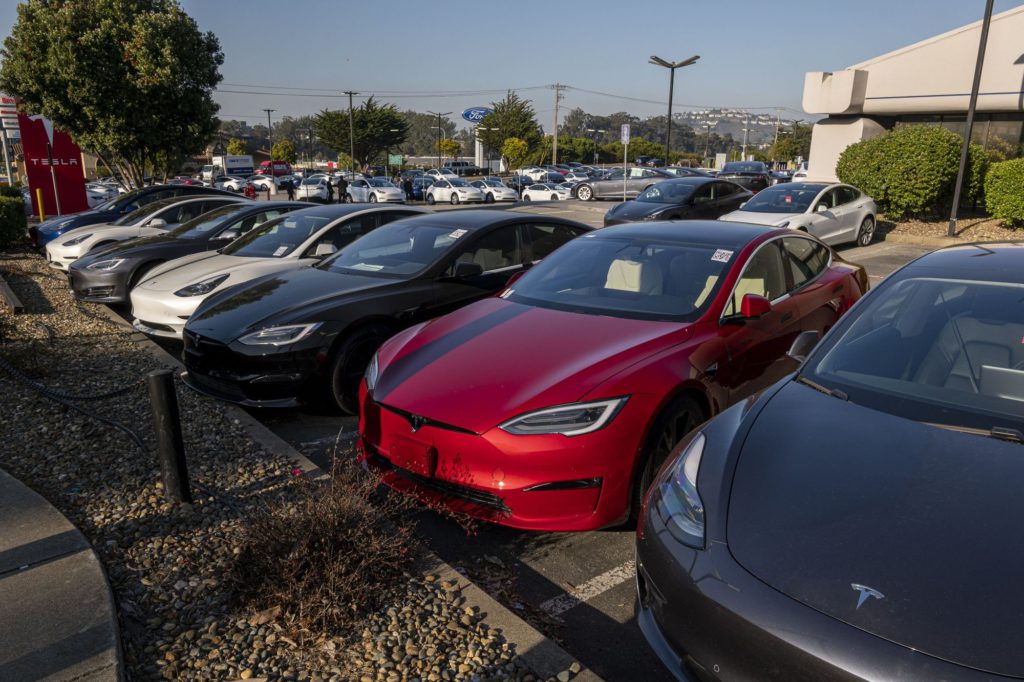(Bloomberg) — A federal judge cut to $15 million a staggering $137 million in damages awarded by a jury in a racial discrimination case against Tesla Inc. over abusive conduct toward a former elevator operator at its northern California factory.
U.S.
District Judge William Orrick said in a ruling Wednesday he was compelled by legal principles to reduce the jury’s October verdict, but he also concluded there was ample “disturbing” evidence to support the outcome of the trial.
Jurors heard that the Tesla factory in Fremont “was saturated with racism,” Orrick wrote, adding that plaintiff Owen Diaz’s co-workers called him “the N-word and other slurs,” and that supervisors and Tesla’s broader management failed to help.
“And supervisors even joined in on the abuse, one going so far as to threaten Diaz and draw a racist caricature near his workstation,” the judge said.
The jury’s award to Diaz after a seven-day trial in San Francisco is believed to be one of the largest in U.S.
history for an individual plaintiff in a racial discrimination case.
Tesla has faced a number of high-profile suits — including one filed by the state of California in February — over its treatment of Black employees and subcontracted workers at the Fremont factory.
Read More: Tesla Sued by California Over ‘Rampant Racism’ at Factory
At a January hearing on Tesla’s request for a new trial, Orrick said he was “troubled” that the $6.9 million jurors awarded as emotional distress damages “may be untethered to the distress to which Mr.
Diaz and his witnesses testified.” Moreover, punitive damages of almost 20 times that amount are “extremely high,” the judge said.
In his ruling, Orrick said “the highest award supported by the evidence” to compensate Diaz is $1.5 million.
He cited U.S. Supreme Court rulings as the basis for his conclusion that the Constitution permits a punitive damages award of $13.5 million — nine times the amount of the compensatory damages.
“What’s clear is that the judge rejected every single argument that Tesla made,” Larry Organ, the attorney for Diaz, said in a phone interview.
“The judge gave the highest ratio that he constitutionally thought he could give.”
Organ said that while a $15 million award is still significant, it remains far lower than what the jury determined and that his team is exploring options for a possible appeal.
Tesla’s acting legal chief didn’t immediately respond to a request for comment.
“This remains one of the highest awards ever made in a racial discrimination case or an employment discrimination case,” said David Oppenheimer, a clinical professor of law at Berkeley Law.
“He wrote a very careful opinion that will make it hard for Tesla to appeal. They don’t have much to work with.”
Orrick roundly rejected Tesla’s argument that damages should be no more than $300,000.
“This is not, as Tesla attempts to frame it, a case of ‘garden variety’ emotional distress that was ‘fortunately mild and short-lived,’” Orrick wrote.
“It is difficult to see how Tesla reached that interpretation of the evidence other than ignoring it.”
The judge also rejected Tesla’s claim that it wasn’t liable because Diaz worked for a staffing agency that the company contracted with.
Jurors found Tesla qualified as Diaz’s employer under the law, “if not on paper,” he wrote. The judge also turned down Tesla’s request for a new trial.
Diaz’s case marks a rare instance in which Tesla, which typically uses mandatory arbitration to resolve employee disputes, had to defend itself in a public trial.
The world’s most-valuable automaker almost never loses workplace arbitrations, though it was hit with a $1 million award in May in a case brought by a former employee that was similar to Diaz’s.
The case is Diaz v.
Tesla Inc., 17-cv-06748, U.S. District Court, Northern District of California (San Francisco).
(Updates with law professor’s comment.)
More stories like this are available on bloomberg.com
©2022 Bloomberg L.P.











